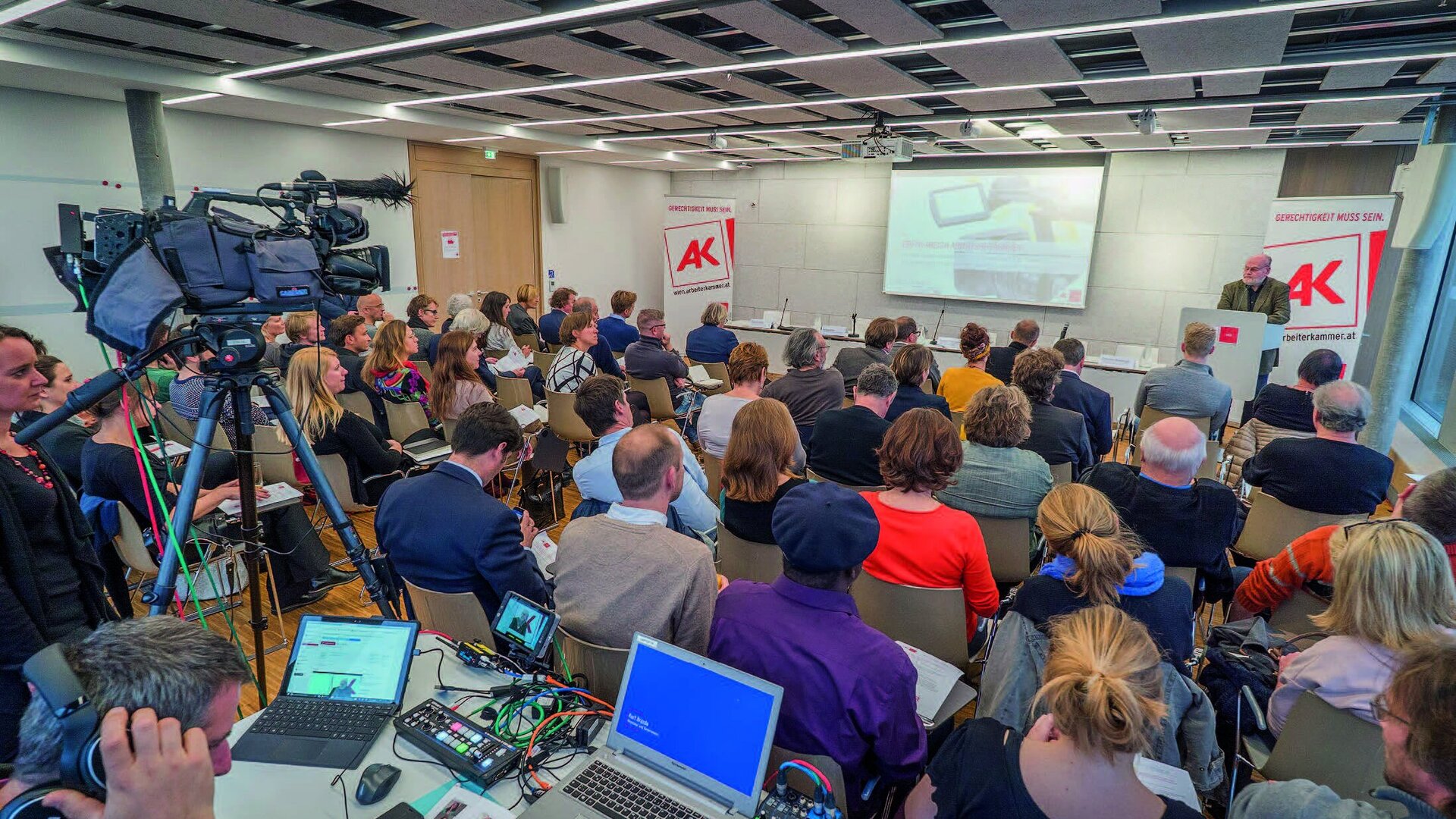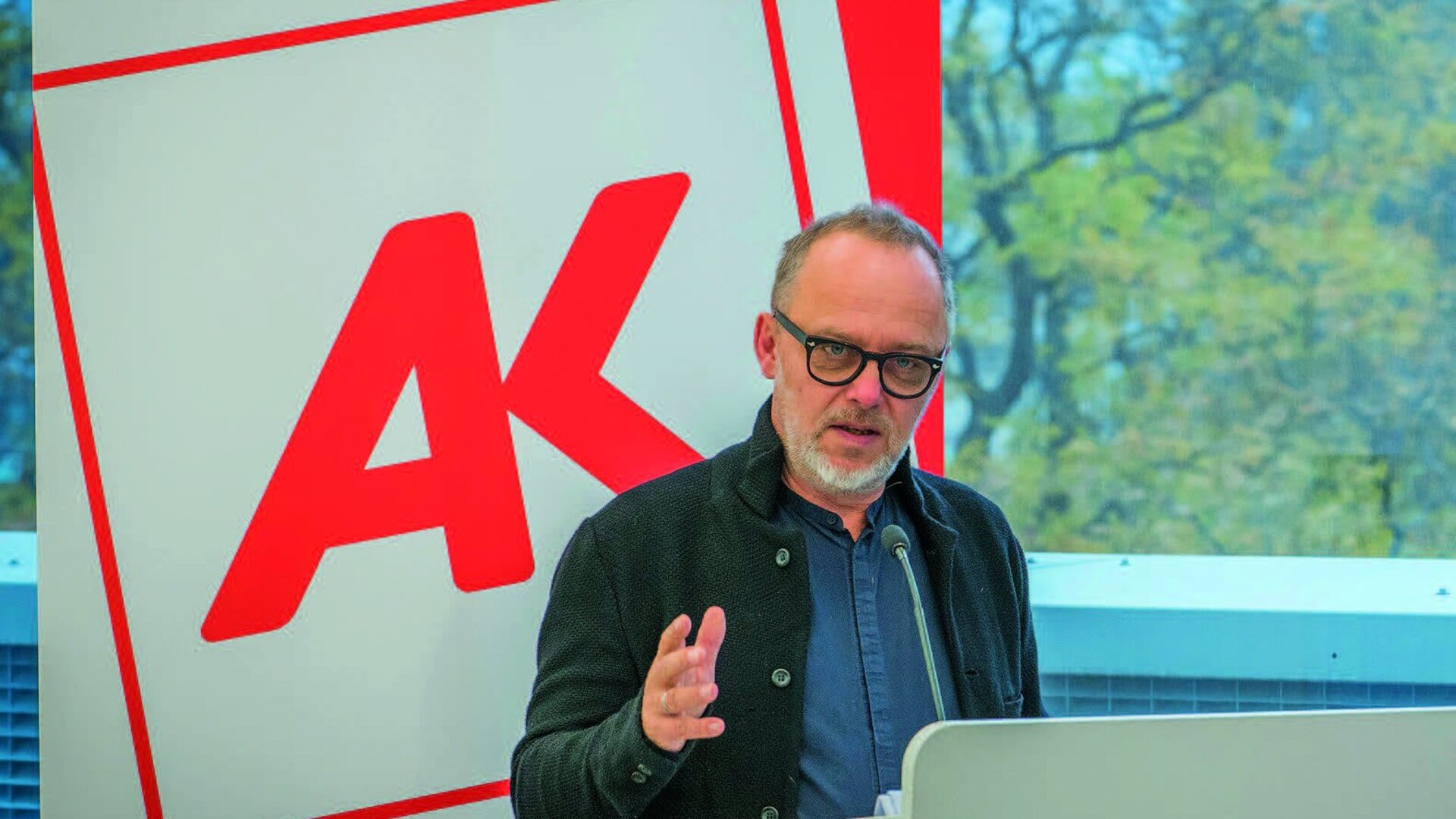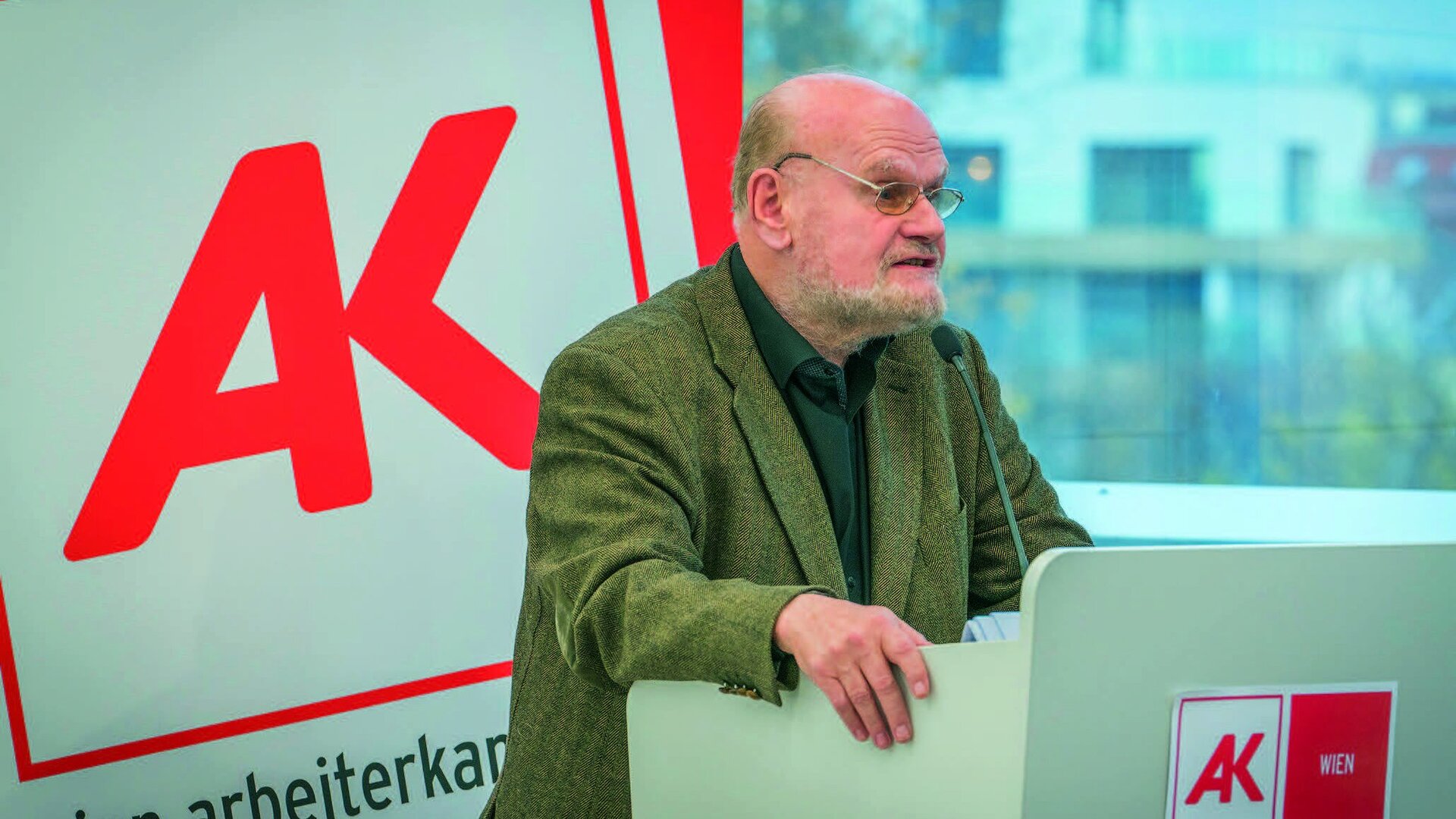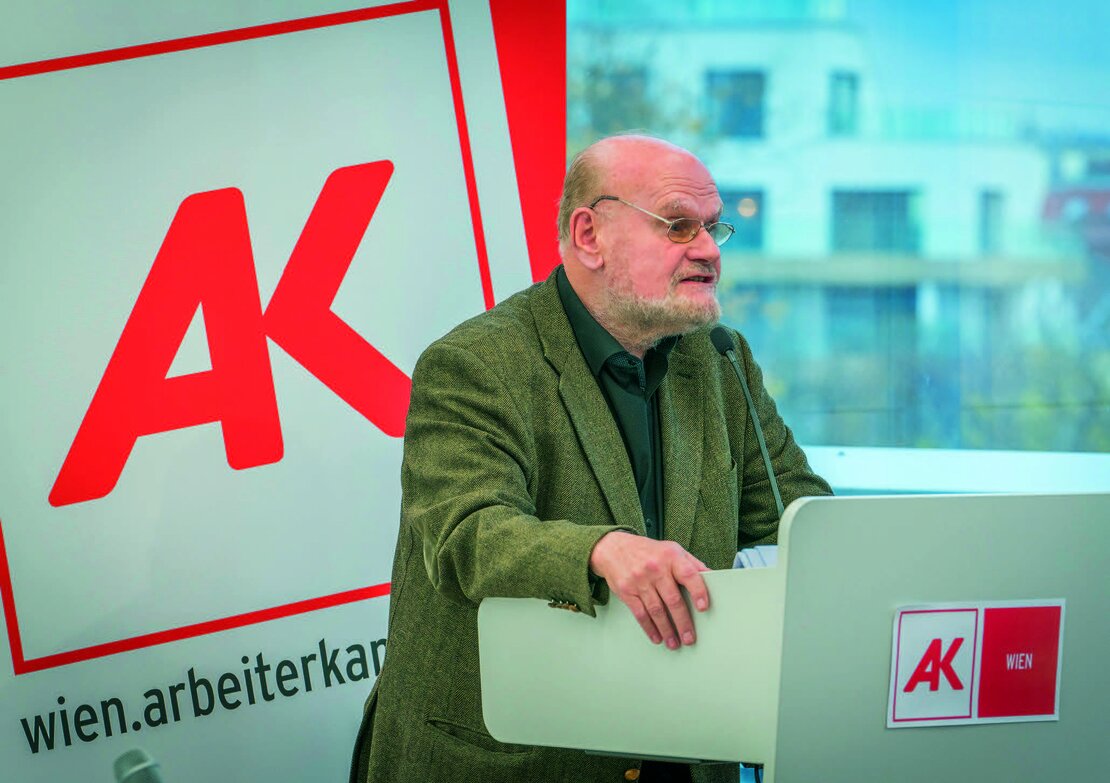Anyone who listens to Kurt Brazda knows that brightening up the situation will no longer be a possibility. "Employment will be the exception, freelancers the rule!" This statement by Brazda contains pretty much everything that is capable of upsetting the "old fashioned loverboys" of the film industry. Employment and a rather conservative interpretation of the corresponding legal regulations is still considered a dogma in this country. At least to some colleagues, who are decreasing every year. But the current structure is crumbling and even the big players are openly asking the question whether it really has to be an employed editor at the level of a collective agreement if a colleague could do it for considerably less "cash on the nail". Additionally, many colleagues are no longer sitting behind the iron curtain but have arrived in the middle of the EU and, above all, are quite carelessly signing pre-carved invoices. At home they don’t even bother social security and taxes anyway, even though they seem to be trying, but they won’t succeed as they would like to.
The film industry as a blueprint for the rest of the world
In fact, the arguments have always been the same and always equally correct throughout the years. By the definition of the labour law, it could be argued that almost all branches of film business are anything but “liberal professions”. The employee is using foreign tools, has working hours and is bound by instructions – and that’s that. Anyone who is stupid enough to not be hired will have to face the consequences afterwards. At first, the additional payments to the SVA after about two years, next you will notice the moment when illness becomes a luxury, afterwards the missing 13thand, 14thmonthly salary and the last final consequence regarding the pension. This last consequence is what hits you the most. Unquestionably, this scenario has come alive the exact same way, regarding far too many people.
Kurt Brazda has nothing against employment at all, as an old trade unionist with an almost romantic inclination towards social democracy, he still considers this to be the best of all solutions. "I myself have fought long enough for improvements in the collective agreement and negotiated such improvements. But I am firmly convinced that in a few years' time this will no longer affect the young people in the industry," Brazda said. His conclusion: social structures would collapse almost everywhere, and the new way of working is turning people into individuals who are almost as free as a bird but at the same time with no protection or regulatory rights.
The film industry therefore serves as a blueprint for the rest of the world. "For example, the drivers at Uber. At whose expenses can the low fares be archived - on the drivers’. And on top of everything else, they bear the whole risk because they are something like free entrepreneurs, without really wanting to be."
Social security contributions
That’s exactly where advocates of employment butted in, even when all the other arguments have become pointless. Additional payments to the SVA? Sorry, but the social security contributions are similar in every type of employment, the sum of employer and employee contributions and other non-wage labour costs do not differ that much. On the contrary! For some benefits the SVA is even better than the regional health insurance funds for employees. Those who have to make additional payments have paid too little beforehand and therefore have a tax consultant who is not very careful and who should know better. Regarding sick leave - there are insurances for that as well, nowadays even offered by the SVA. Regarding the 13thand 14thmonthly salary - it's only half the pain if my salaries are higher in the end. Regarding Pension – well that may have been the case so far, but honestly, filmmakers in their 20s can't really assume that there will be something like a pension.
Those who already knew what they had to charge when working on account, and that 450€ per day, stated in the collective agreement, can’t and must not be the same amount on account, has already been well prepared, even without being employed. Providing that the client saw it the same way.
Liability and instructions
But what about liability? As a supplier, as a company, I am liable for all kinds of things that can never be blamed on an employee, even proven stupidity is insured. Even the insurance companies are now taking this into account. For years, subcontractors' employees have also been treated in liability matters, very often concerning lighting or equipment, as if they were directly employed in production.
What’s left: bound by instructions, equipment provided, working hours? Danny Krausz, head of the trade association, said during the "Successfully poverty-prone" survey last year in November, that he no longer assumes that a DoP such as Thomas Kienast will allow him to issue instructions. Many DoPs, for example, take their own optics or their own filters with them, and the fact that shooting is scheduled to start at 7 o’clock does not necessarily result from the instructions of a boss, but rather from the factual and technical necessities that should be recognisable to all those involved and is therefore usually determined by their consent. That’s how it works, in a matter of a second a quite sensible legal regulation becomes obsolete.
“The separation into bad producers and good ones, but poor and exploited filmmakers is no longer making any sense”, Brazda says and continues: “We are all on the same side and should rather fight as a team against the real enemies of our welfare state, who are dictating our working conditions.” For example, TV stations, which don’t follow any rules, especially those companies who are calling themselves “broadcasters” and broadcast on the internet, and seriously believe that neither the collective agreement nor any other collective regulation apply to them. The same applies to all those filmmakers who are stating the price and afterwards receive the contract and are therefore passing on this pressure on prices to the others.
This is where Brazda criticises the trade union, who, in his opinion, only feels responsible for already existing regulations and their observance, whereas new laws and new employment models are not in their fields. "Their only answer is that the chambers of commerce are responsible for this, and they'll look at it afterwards." The perfectly understandable logic behind this behaviour is that nobody wants to be the one to think of those threatening deteriorations.
Exploiter of oneself
But this doesn’t have to happen, says Kurt Brazda, because a new way of thinking would rather lead to more people feeling attached to the trade union, including the EPUs and the newly self-employed. "A self-employed cameraman has not suddenly become an exploiter of workers, rather an exploiter of himself. That's what we should protect him from, from being exploited by others and from being exploited by himself". But who does the union represent and especially to whom?
"That’s a good question, but this is what’s requiring new structures and regulations. The first step would be more transparency, the second would be something like a norm and control layers. Society should be interested in establishing a smoothly running employment. For Kurt Brazda, reforming the trade union or at least having them to rethink their current structure, is a major concern. It may not be possible to regulate everything, but a certain social competence should be important to the state and should therefore be enforceable. “That’s one of the reasons why we are going to Brussels with the International Federation of Cinematographers, because we need allies that support us in carrying this out politically.
Allies
His first allies are surprisingly enough coming from the trade unions, who are also rethinking the whole situation. What sounds like something out of the loaner equipment from a construction market – “vidaflex” – is in reality a trade union representation with an extensive service package for EPUs, small businesses and start-ups. "I've been suggesting this for years now, you can already see it works," says Kurt Brazda, who also feels that the chambers and unions are overtaxed. That’s why these concerns have to be brought to the attention of politicians. “I won’t accept that we have never fought back. This issue has to be discussed within Europe.” At the same time Brazda is praising the work done by the umbrella organisation of filmmakers, because according to Brazda, their studies and events have attracted a great deal of attention in recent years. "They've managed to make people talk to us instead of talking about us." Although he is convinced, that the big ideas will take years to be implemented, but the main thing is that it happens, at least sometime.



